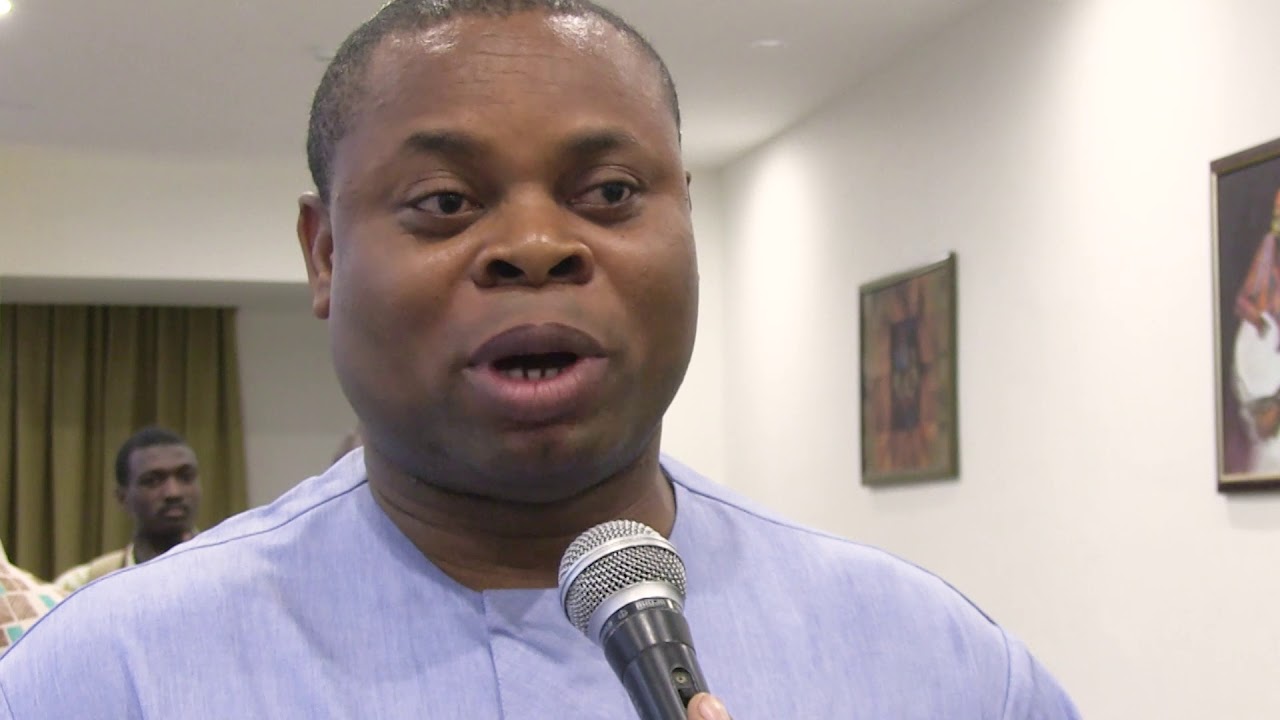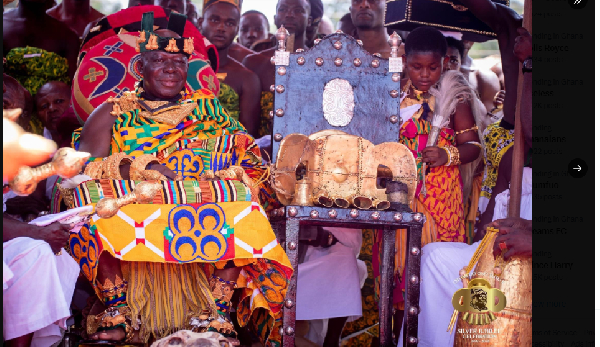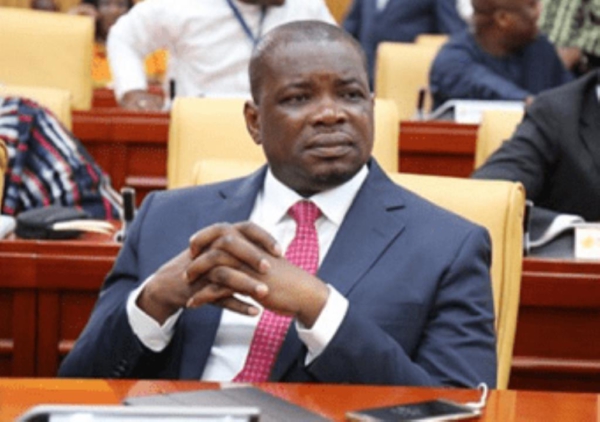
We've Competed In The Past But... - Alan Kyerematen On Relationship With Akufo-Addo

Former Minister of Trade and Industry, Alan Kyerematen says President Nana Addo Dankwa Akufo-Addo "has been a good friend and will always remain so"Addressing Ghanaians a few days after resigning from his position as the Trade Minister, the flagbearer hopeful said even though they've competed in the past, they've "always worked together""His Excellency the President, Nana Addo Dankwa Akufo-Addo has been a good friend of mine and will always remain so based on our shared commitment to the ideals and principles that inspired the founding fathers of our great Party, the New Patriotic Party (NPP).
We have competed in the past but have always worked together thereafter" he stated.Below is his full speechFellow countrymen and women.Friends of Ghana.Let me start first by wishing you all a happy, healthy, productive and prosperous New Year.Secondly, I wish to express formally, my profound gratitude to His Excellency the President for the opportunity given me to serve the good people of Ghana in his Administration over the last six years, and for graciously accepting my resignation as Cabinet Minister responsible for Trade and Industry, with effect from 16th of January 2023.Thirdly, I wish to use this platform to formally announce my decision to contest the flagbearership of the New Patriotic Party when the Party officially opens nominations for that purpose.His Excellency the President, Nana Addo Dankwa Akufo-Addo has been a good friend of mine and will always remain so based on our shared commitment to the ideals and principles that inspired the founding fathers of our great Party, the New Patriotic Party (NPP).
My vision is to build a superstructure on this foundation that will bring prosperity to our nation.The pre-COVID-19 performance of our economy, the flagship programmes including the Free SHS, the One District One Factory (1D1F) Initiative, the Planting for Food and Jobs programme, the Agenda 111 project and the COVID-19 Response initiatives, are all testimonies of the strong leadership that the President has provided over the last six years.In spite of all of the above however, it is an undeniable fact that the combined effect of the COVID-19 Pandemic and the Russia-Ukraine war has stampeded our country into a crisis of unprecedented proportions, with its negative impacts on the economy, businesses, and on our social lives.I have no doubt that the anticipated International Monetary Fund (IMF) Support Package will restore confidence in our economy, and bring it back to the pre-COVID levels.Fellow Countrymen and WomenThis is the seventeenth time that we have gone to the IMF over the last 57 years.
That Plan must move Ghana from Stability and Growth to Transformation.Fellow Countrymen and WomenIf by the will of God and through your goodwill, I am voted first, as the flagbearer of the NPP and subsequently as President of the Republic in the next general elections, I will become the transformational leader of our time, who will build on the foundations laid by successive leaders of our nation over the last sixty-five (65) years.To achieve this strategic goal of transforming our dear country to become the shining star of the new Africa, I will as President, launch and lead the execution of the Great Transformational Plan (GTP) of Ghana which will span the period 2025 to 2030.The Post-COVID Economic Recovery Programme (P-CERP) currently being implemented with the anticipated support from the IMF from 2023 to 2025, will be a transitional economic programme leading to the roll out of this Great Transformational Plan.Fellow Countrymen and WomenBefore I proceed to provide a brief insight into the key elements of the Great Transformational Plan, seven critical considerations would need to be taken into account to guarantee the success of the Plan.1.
A Strong Macroeconomic Environment: The success of the GTP will depend primarily on strong macroeconomic fundamentals, which will include among other things, a stable currency, low inflation, sustainable debt levels, revenue optimization and tight expenditure control to guarantee fiscal balance, low competitive interest rates, strong external reserves backed by high levels of liquidity to support the financial sector.To a large extent, the IMF support programme when fully executed, will create the appropriate conditions that will underpin the Great Transformational Plan.A New Agricultural Revolution (NAR) for Ghana: The NAR will be based on five critical elements.-Introducing Technology and Innovation into Agriculture, through Research & Development (R&D) in Agronomy, Mechanization, Irrigation, and Plantation Management.
It will be complemented by the introduction of a digitalized food distribution and marketing online platform which will connect producers to buyers and consumers.-The strengthening of the Ghana Commodity Exchange as the marketplace for all actors in the Agricultural value chain.-Deepening the current regime for lending and financing for the agricultural sector.-Enhancing the de-regulation of the Cocoa sector by deepening private sector participation in the buying and marketing (including export) of Cocoa.-Mass Citizens participation in Agriculture by introducing an ‘Operation Own a Farm’ programme for the Ghanaian citizenry in general.-Industrial Transformation: This will build on the successes of Government’s Ten Point Industrial Transformation Programme including the One District One Factory (1D1F) initiative; the establishment of Strategic Anchor Industries to diversify the economy beyond Cocoa and Gold e.g the Automobile assembly, Garment and Textiles, Pharmaceuticals and the Petrochemical industry; enhancing the growth and development of Small and Medium Enterprises; establishment of Industrial Parks and Special Economic Zones; and supporting Domestic Retail Trade and Distribution.-Accelerated Infrastructure Development: Promoting Private sector financing for public infrastructure such as Roads, Railways, Ports and Harbours, Water Supply Systems, Public Housing etc, which will reduce Government’s exposure to the financing of such infrastructure projects.-Digital Mainstreaming: Digitalization will be mainstreamed in all Government and Public sector activities, building on the current work led by the Ministry of Communication and Digitalization.-Energy Security and Diversification: Greater emphasis to be placed on developing renewable sources of energy, by fast-tracking the execution of Government’s energy transition strategy, including but not limited to nuclear and hydrogen energy.-Decarbonization and Climate Resilience: Scaling up Government’s current efforts at reducing Ghana’s carbon footprints and facilitating access to the carbon trading markets, as well as establishing mechanisms to strengthen the country’s preparedness against the negative effects of climate change.-National Security and Defence Optimization: Deploying resources to strengthen National Security and Defence Mechanisms and Infrastructure, to deal substantively with emerging security threats and challenges, particularly in the Sahalian region.-Downsizing Government: The architecture of Government will be overhauled by consolidating some existing Ministries, Departments and Agencies.
This will mean running a lean Government structure that will ensure operational efficiency and effectiveness in the delivery of Government services.-Strategic Engagement with the International Community: Ghana’s diplomatic and economic relations with the International Community under the GTP will be predicated on the principle of ‘positive neutrality’, based on the strategic interests of Ghana, as well as our shared commitments for the preservation of peace around the world and respect for humanity.I will in the next several months provide further details of this Great Transformational Plan in the new ‘Alan K Prime Time Talk Show’ to be introduced.






